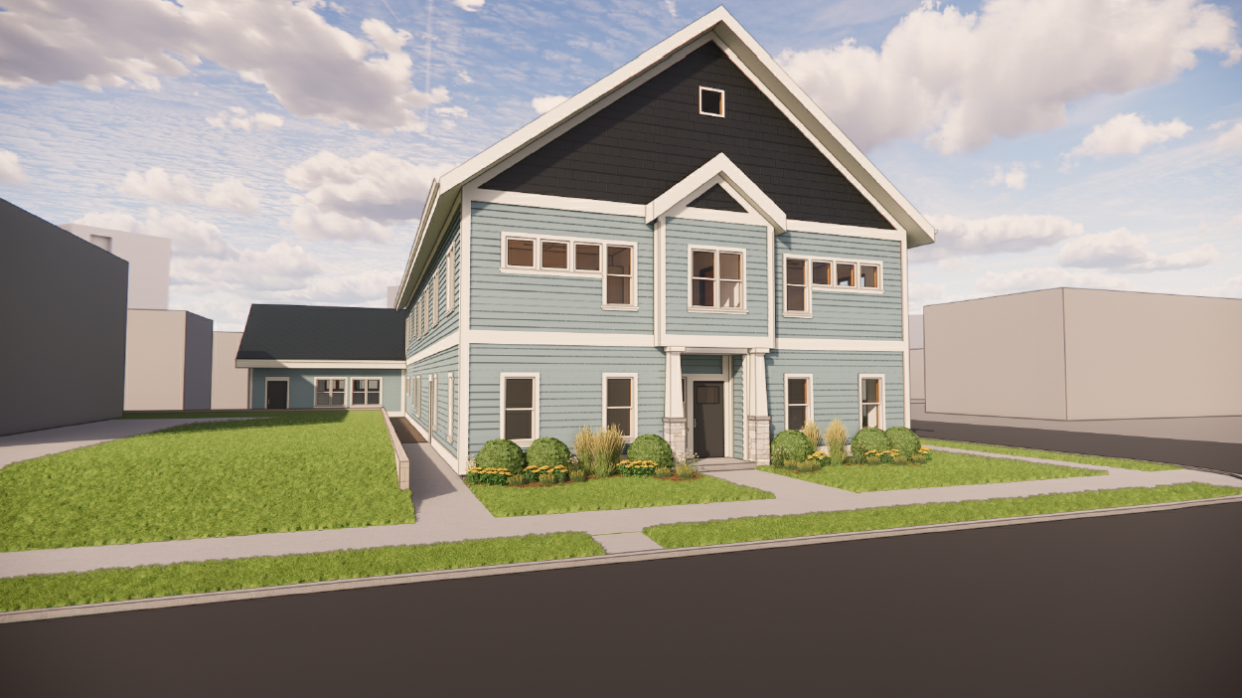New recovery housing on Milwaukee's north side opening in July

A new treatment home addressing substance abuse disorder, homelessness, and mental health, will open in July on Milwaukee's north side.
Serenity Inns has been operating nearby the building's construction site at 2830 W. Brown St. at its old building. The residential recovery housing nonprofit has been providing housing since 2004 to those who were, in most cases, recently referred by a detox facility.
Ken Ginlack, chief executive officer of Serenity Inns, has told his story to many people. The former director of outpatient treatment programs for Milwaukee County, has held many positions in health service, including with the Wisconsin Department of Health Services, Columbia St. Mary's Hospital, and St. Charles Youth and Family Services.
Ginlack, 53, used to have a substance abuse problem. His youth spent in Milwaukee and Florida, Ginlack first used cocaine at age 14. It was common for Ginlack to be involved in violent encounters, including witnessing his friends be murdered.
Soon, he developed an alcohol addiction and started using crack cocaine at about age 30. His addiction to crack resulted in him hitting rock bottom.

"I lost everything," Ginlack said.
At the risk of being homeless, Ginlack, his now-wife, and their three kids moved into his mom's basement.
Ginlack's "getting clean story" is one of divine intervention, he said.
In 2007, two men looking to buy drugs picked up Ginlack and as he sat in the back of the car with a metal pipe, he contemplated robbing the men, but someone or something told him not to.
"I was thinking about how I was gonna pull this off," he said. "But at that time I feel like someone whispered to me and told me that if I do this, my life will change forever.
"I ended up telling them to stop the car. I got out of the car and I was crying. I went home and I told my mom that I need to get help. My life was in shambles at that point. And I ended up going to detox."
Ginlack has been clean ever since. He went on to go to college and eventually obtained a master's degree in social work. Since then he has been providing counseling to those with substance abuse issues.
His newest task as CEO of Serenity Inns is overseeing the completion of the new treatment home just adjacent to the recovery housing's old home.
The new location will be able to provide housing to 12 people who just went through detox, typically at Rogers Behavioral Health or First Step Community Recovery Center.
Homes like Serenity Inns offer that next step and typically provide stability to those who are looking to start over after losing almost everything to substance abuse.
Research finds that recovery housing often leads to decreased substance use, reduced likelihood of return to use, lower rates of incarceration, higher income, increased employment, and improved relationships.
The new home has a large dining area, exercise room, and library with a fireplace.
New Serenity Inns residents will receive treatment, including group therapy and money management, for 30 days at Serenity Inns before they begin to look for employment.
Serenity Inns also has volunteers, typically from one of the five Lutheran congregations that founded the nonprofit, who provide dinner to the residents and offer an opportunity to discuss substance abuse.
"This breaks the stigma of addiction," Ginlack said. "That's something that's very unique about Serenity Inns. For a lot of the guys this is the first time ever they've had a family style meal. And having a chance to get to know people in the community that actually care about them."
Once residents find employment, they are charged $10 a day to stay at the home. After about five or six months of consistent employment, they receive an opportunity to move into the Alumni House, an affordable, safe, substance-free apartment building near North 25th Street and West Kilbourn Avenue.
"We wrap services around the guys for a very long time," Ginlack said. "We really try to help guys get on their feet."
If you are struggling with substance abuse please call the Substance Abuse and Mental Health Services Administration at 1-800-662-4357.
This article originally appeared on Milwaukee Journal Sentinel: New recovery housing on Milwaukee's north side opening in July

